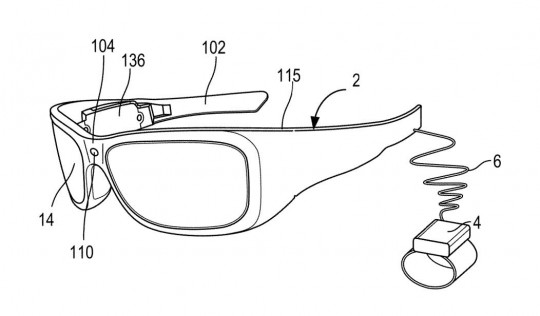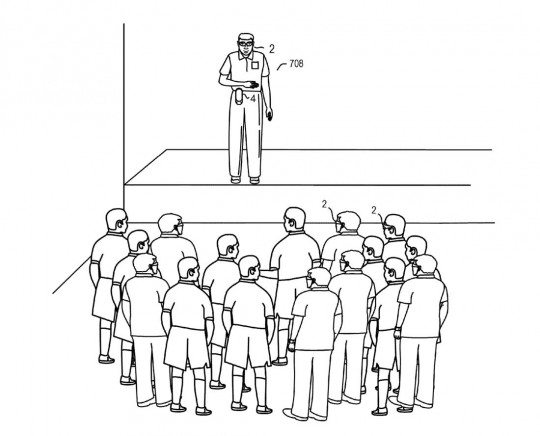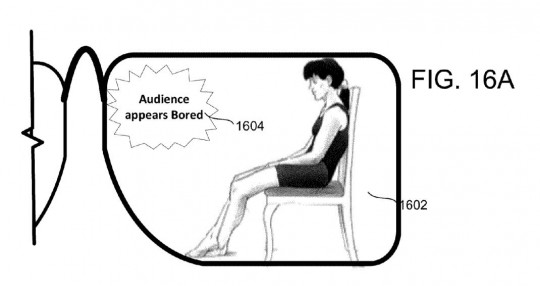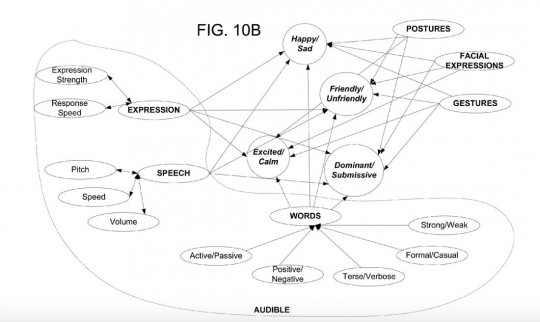Microsoft Glasses Read Your Emotions
 Software giant Microsoft has been granted a patent for glasses that, the patent claims, can measure human emotions. Of particular interest is that the glasses are intended to work in both directions: they measure both the emotional state of the wearer as well as those of people the wearer can see.
Software giant Microsoft has been granted a patent for glasses that, the patent claims, can measure human emotions. Of particular interest is that the glasses are intended to work in both directions: they measure both the emotional state of the wearer as well as those of people the wearer can see.
U.S. Patent 9,019,174, Wearable Emotion Detection And Feedback System, suggests unusual capabilities if the device can actually deliver on the claims.
Beyond Facial Coding
The glasses go beyond facial coding analysis. They are designed to detect and interpret gestures and posture, and have microphones to collect and analyze audio. And, they can provide immediate feedback to the wearer.
The patent suggests that the glasses will allow integrated analysis of:
- Posture
- Gesture
- Facial Expressions
- Speech
- Words
- Expressions
In each case, the data will be compared to a database to gauge its emotional content.
Of course, my first thought was that the glasses could be an interesting tool for neuromarketers. The glasses could be a fast way to judge consumer responses to ads, products, and even people. The wearer (in this case the data collector) could be mobile and able to follow crowds, change direction, and adapt to new conditions.
Speed it Up, Bob, You’re Dying Out There

One illustration shows a glasses-wearing person in front of an audience and, presumably, gauging their emotional response to what he’s saying. Although wearing bulky glasses might be off-putting in itself, theoretically a speaker could judge the reaction to her delivery as well as individual content elements in a presentation.

Real-world Applications
There are innumerable ways one could use emotion-sensing glasses, and the patent application doesn’t say what Microsoft is thinking.
A post at WSJ.com takes a few guesses:
Some obvious ones could include interrogations and questioning at borders, where the device’s sensors can measure changes in a person’s body temperature, or can pick up very subtle shifts in voice quality. Boardroom negotiations and employee hiring are also possibilities.
What are your thoughts about how to use the Microsoft glasses? Will they prove more useful and socially acceptable than Google Glass? Or are they even more creepy? Share your ideas in a comment.
And, after I take delivery on a pair of these, is anyone up for a friendly game of poker?

